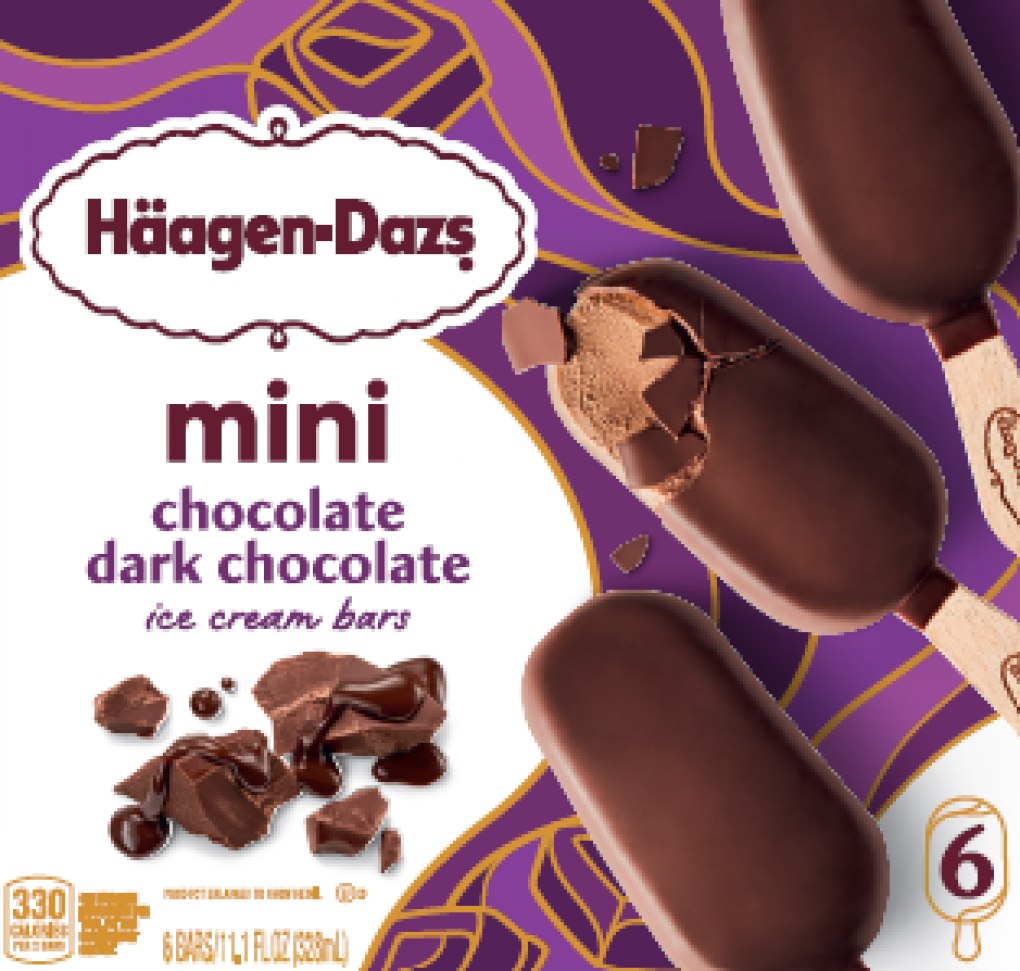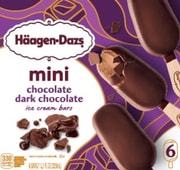
Think your favorite pint of ice cream is safe? Think again.
A recent product recall is sending shockwaves through freezers nationwide—not just because of what’s in the tub, but what’s missing on the label.
As sweet treats fly off shelves, this chilling reminder highlights a serious gap in food labeling that could put allergy-prone consumers at serious risk, and in some cases, even death.
Before you dig in, here’s what you need to know—and why checking the fine print might be more important than ever.
What’s behind the latest ice cream recall
Dreyer’s Grand Ice Cream, Inc. has issued a voluntary recall for select packages of Häagen-Dazs Chocolate Dark Chocolate Mini Bars due to potential wheat contamination not listed on the label.
What’s especially troubling about this recall is how it happened.
A packaging error early in the production process led to wheat-containing ice cream bars being placed in boxes that didn’t list wheat as an ingredient. That means consumers with wheat allergies could unknowingly be exposed to a serious health risk—all because of a labeling oversight.
"Although our investigation is ongoing, we believe products containing wheat were repacked into the incorrect packaging at the beginning of a production run," Dreyer's said.
The affected product comes in 6-count boxes with the batch code LLA519501 and a best-by date of January 31, 2027.
These bars were distributed to Kroger stores across more than two dozen states—including California, Texas, Ohio, and Georgia—as well as Giant Eagle locations in Indiana, Maryland, Ohio, Pennsylvania, and West Virginia.
No illnesses or adverse reactions have been reported, and the recall is limited to this specific batch. Other Häagen-Dazs products remain unaffected.
Consumers are encouraged to check their freezers and return the product if it matches the recalled batch. For those with wheat allergies, even trace amounts can trigger serious reactions—making accurate labeling a critical safety measure.
Next steps for consumers
Consumers who may have purchased the affected Häagen-Dazs mini bars are advised to avoid eating them and instead bring them back to the store where they were bought to receive a refund.
For questions or concerns, Dreyer’s Grand Ice Cream can be reached by phone at 800-767-0120, Monday through Friday between 8 a.m. and 5 p.m. ET, or by email at [email protected].
Staying informed about food recalls
In an email to Newsweek earlier this year, the Food and Drug Administration (FDA) clarified its role in voluntary product recalls.
According to the agency, most recalls in the country are initiated by manufacturers themselves. When a company issues a public warning, typically through a press release, the FDA helps share that information on its website as a public service.
During these voluntary recalls, the FDA reviews the company’s strategy, assesses the potential health risks, monitors the recall process, and, when necessary, alerts the public and other businesses in the supply chain.
To keep consumers informed, the FDA also maintains an online Enforcement Report, which categorizes recalls and outlines the specific actions taken by each company.
For more details, consumers can visit the FDA’s Recalls, Market Withdrawals, & Safety Alerts page.
Looking ahead
The recent ice cream recall serves as a powerful reminder that clear and accurate allergen labeling isn’t just about regulatory compliance—it’s a vital part of protecting consumers and maintaining trust.
For individuals with food allergies, even a small oversight can lead to serious health risks. Ensuring that labels reflect exactly what’s inside a product is both a safety necessity and a key element of responsible customer care.
Do you check allergen labels every time you shop, or only for certain products? If you or someone in your household has food allergies, how do you stay alert for hidden risks? Share your experiences with food safety and labeling in the comments below—you might help other members of our community stay safer when shopping.






